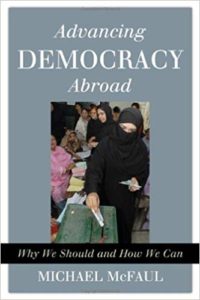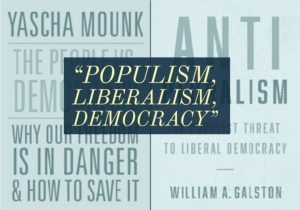 The annus mirabilis of 1989 will not be repeated, says a former State Department adviser.
The annus mirabilis of 1989 will not be repeated, says a former State Department adviser.
Democracy and the other political principles that are at the foundation of the United States are unlikely to take root in rival powers like Russia and China, and therefore cannot be the solution to international competition and conflict. Democracy, that is, has reached its geopolitical limits, according to Jakub Grygiel, an associate professor of politics at the Catholic University of America.
The geopolitical limits of the liberal democratic model are also visible, albeit to a much lesser and different degree, within the Western alliance, he writes for The National Review:
Political liberty has various national expressions, many of which will not match ours (and certainly will not match the progressive vision). Some states may have a tradition of a tight connection between political life and religious faith; some may be more accepting of a strong leadership, respectful of the law but not a coequal of other branches of government; some are protective of their national way of life and may oppose the progressive definition of human rights as the satisfaction of self-preferences. In brief, to be legitimate and thus lasting, democracies must take particular national expressions. Universality is not uniformity; ordered liberty requires a pluralism of political forms.
 The United States should aim to promote liberal values as well as electoral democracy, other analysts suggest.
The United States should aim to promote liberal values as well as electoral democracy, other analysts suggest.
But imposing a uniform format of liberal democracy is not a strategy of strengthening our alliances; on the contrary, it risks weakening the Western alliance at the very moment we need it the most, adds Grygiel, a former senior adviser in the Department of State. RTWT
In any case, U.S. foreign policy is overdue for a rebalancing, one that would revive a more multidimensional approach to strengthen democracy and make the world safer, The New York Times contends:
 James Goldgeier, a professor of international relations at American University, said that a recent roundup of progressive and conservative views on reimagining foreign policy, in the Texas National Security Review, showed potential for a bipartisan consensus. It would be based, he said, on “the growing belief among many progressives and conservatives that the United States should be engaged in fewer military interventions in the world, given the failures in Iraq, Afghanistan and Libya.”
James Goldgeier, a professor of international relations at American University, said that a recent roundup of progressive and conservative views on reimagining foreign policy, in the Texas National Security Review, showed potential for a bipartisan consensus. It would be based, he said, on “the growing belief among many progressives and conservatives that the United States should be engaged in fewer military interventions in the world, given the failures in Iraq, Afghanistan and Libya.”
Whatever the underlying policy principles, one observer insists that organizations such as the National Endowment for Democracy deliver great bang for the buck in advancing democracy, as advocated by former NED Reagan-Fascell fellow Michael McFaul (above).







